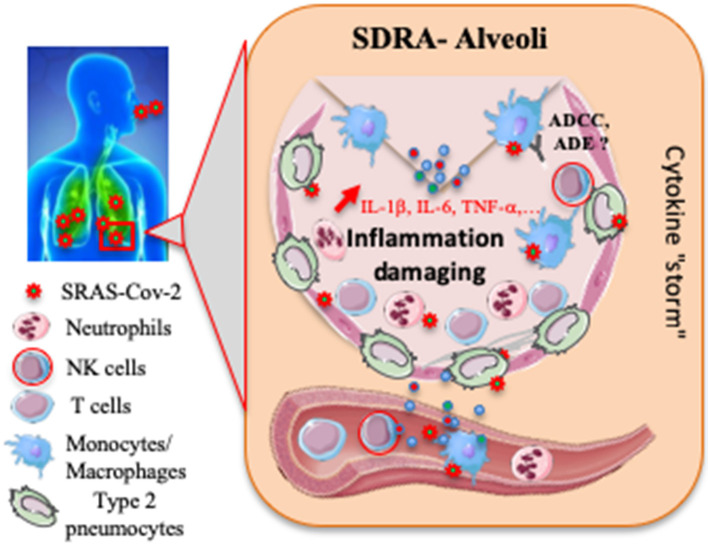Figure 1.
Proposed host immune responses during SARS-CoV-2 infection. Aerosolized uptake of SARS CoV-2 leads to infection of ACE2-expressing target cells, such as alveolar type 2 pneumocytes or other unknown target cells. The virus may dampen antiviral IFN-α/β responses resulting in uncontrolled viral replication. The influx of neutrophils and monocytes/macrophages results in hyperproduction of pro-inflammatory cytokines. The immunopathology of lung may be the result of the “cytokine storm.” NK cells and specific T cells may be activated and contribute to exacerbating inflammatory responses, and then to an acute respiratory distress syndrome (ARDS). SARS-CoV-2 specific Abs may help neutralize viruses, participate to antibody-dependent cell-mediated cytotoxicity (ADCC) or on the contrary to induce antibody-dependent enhancement (ADE). To date, most events remain speculative or unknown.

